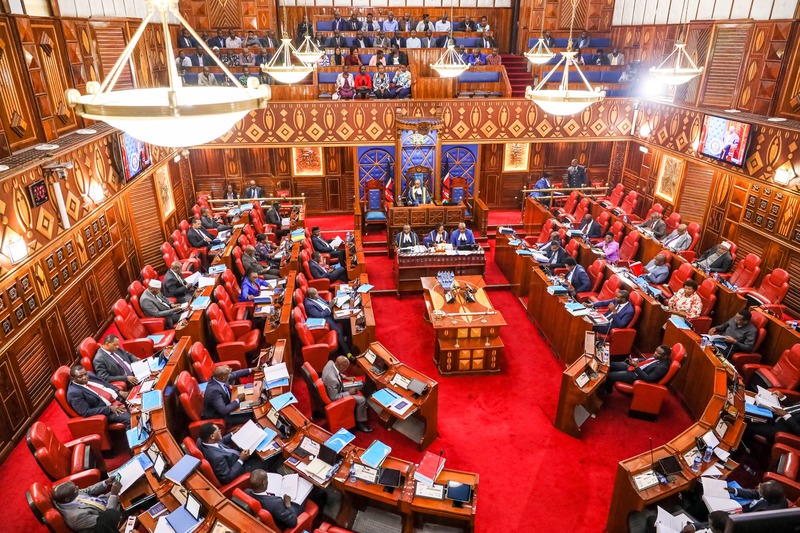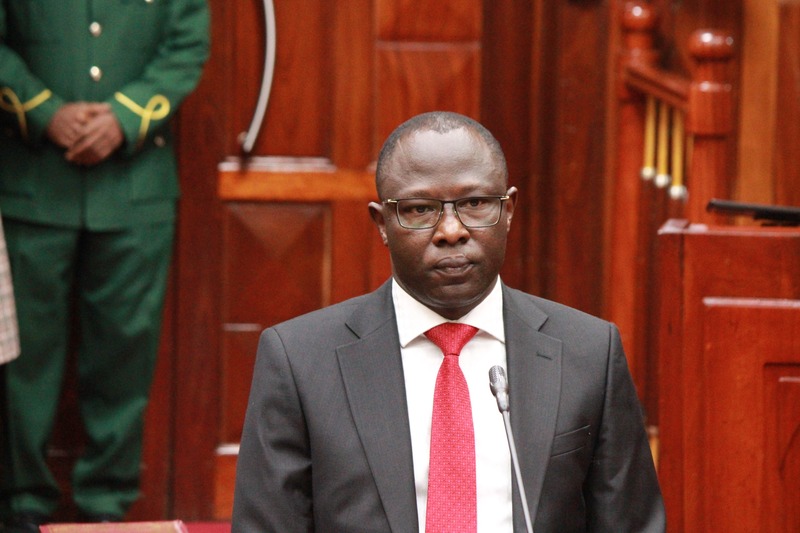Employers raise alarm over Kenya’s shrinking investment appeal, job losses

Official statistics from the Kenya National Bureau of Statistics show formal job creation fell to 75,500 in 2024, down sharply from 123,000 in 2023.
The Federation of Kenya Employers (FKE) has raised serious concerns about Kenya’s deteriorating investment environment, warning that rising operational costs, shifting policies, and declining investor confidence are threatening the country’s economic future.
Speaking at the Federation’s 66th annual general meeting, FKE President Dr Gilda Odera highlighted the worrying trend of Kenya losing ground to regional neighbours like Rwanda, Uganda, and Tanzania, which were ranked as more attractive destinations for high-net-worth individuals in the 2024 World Citizenship Report.
More To Read
- Kenya’s GDP to grow 5 per cent in 2025, driven by agriculture and fintech, says AfDB
- Economic outlook: Kenya’s inflation climb raises prospect of monetary tightening in coming months
- World Bank warns of mounting fiscal pressure as Kenya faces debt distress risk
- FKE warns of job losses as high taxes force business closures, urges relief in budget
- Kenya’s economic output rises 8 per cent to hit Sh16.22 trillion in 2024
- IMF upgrades Kenya’s economic growth to 4.8pc in 2025 despite regional, global slump
“Notably, the 2024 World Citizenship Report ranked Rwanda, Uganda, and Tanzania as more attractive destinations for high-net-worth individuals than Kenya, highlighting growing concerns about our investment climate, and this is unprecedented,” she said.
Central to the challenges facing businesses are rising costs driven by statutory deductions such as the housing levy and the Social Health Insurance Fund (SHIF) contribution.
These financial burdens, combined with frequent changes in regulations, are putting pressure on employers, reducing their resilience and leading to job cuts across key sectors.
The impact is reflected in official statistics from the Kenya National Bureau of Statistics (KNBS), which show formal job creation fell to 75,500 in 2024, down sharply from 123,000 in 2023.
FKE CEO Jacqueline Mugo underscored the urgency of the situation, warning that the slow pace of job creation is out of step with the growing number of young people entering the labour market.
“This decline comes at a time when between 800,000 and 1.2 million new job seekers enter the labour market annually, while more than 5 million people remain unemployed. This stark mismatch between job creation and labour market demand illustrates a harsh reality that Kenya is educating its youth for a lifetime of unemployment unless something changes,” she said.
While welcoming some measures in the 2025 Finance Bill, the Federation expressed strong reservations about controversial provisions that could further discourage investment.
These include a clause allowing the Kenya Revenue Authority (KRA) to access trade secrets and personal data from businesses, as well as extended timelines for tax refunds, which can now take up to 180 days.
“Policy unpredictability and frequent regulatory changes have made long-term business planning challenging,” Dr Odera said.
The Federation of Kenya Employers is calling on the government to enact focused reforms aimed at revitalising the private sector.
According to FKE, such reforms are essential to reversing job losses, attracting investment, and supporting Kenya’s broader economic development.
Top Stories Today













































